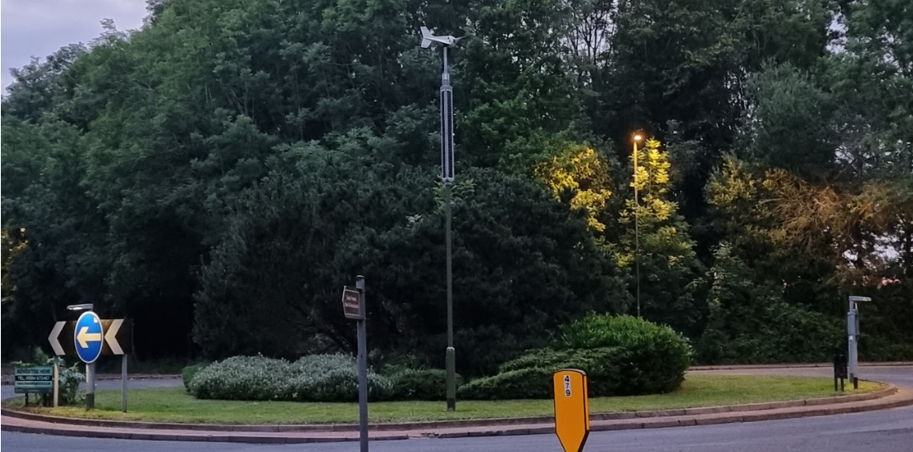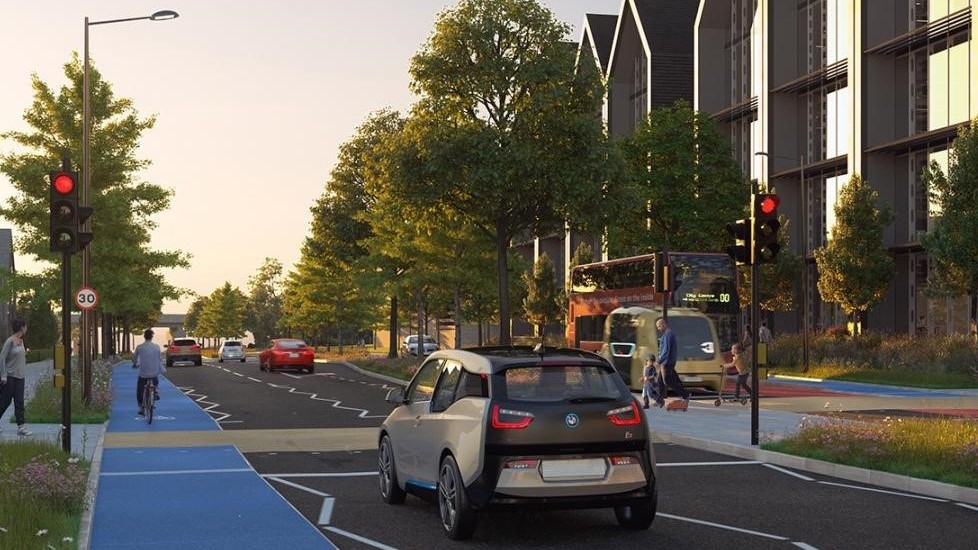As part of our business Environment Strategy, and our commitment to protecting the communities in which we work, we have been working closely with our client, Peterborough City Council, to ensure our projects reach biodiversity net gain targets.
Last year, our team undertook the Junction 15 carriageway expansion project in Peterborough. Early in the project the team committed to achieving biodiversity net gain on the project. Through several landscape re-designs, we achieved a final biodiversity net gain score of 12.94%, above the 10% typically targeted by developers .
Since the completion of this project, our teams have been working closely with Peterborough City Council to understand and develop methods to improve biodiversity net gain scores on future projects.
Through Natural England’s Biodiversity Net Gain Tool, each habitat within a construction boundary is assessed, and a baseline value is assigned. Where habitats are being lost or modified, units of losses are calculated within the metric. While most of the works we undertake with Peterborough City Council do not have a mandatory requirement for biodiversity net gain, as our works are predominantly permitted development, the team are committed to achieve 20% through habitat creation or improvement.
Storey Bar Road Project
The Storey Bar Road project saw our team work to widen the junction, alongside the creation of a shared use cycle and footway, to improve traffic flow within the area, supporting the city’s growth and encouraging active transport.
Working to mitigate the loss of woodland habitat through the project, the team recognised a local green space, Parnell Park, as an area which could be utilised as an off-site area for biodiversity improvements. The team worked to plant five native tree and shrub species, alongside ground flora wildflowers. The works also included the re-seeding of cleared road verges with a species-rich grassland, on completion.
This project received a net gain score of 21.10%, exceeding Peterborough City Council’s target of 20%.
Thorpe Wood Cycleway
Thorpe Wood Cycleway is a complex scheme involving several aspects, including the widening of the footway and cycleway implementation.
Surrounding the site is a variety of habitats, which have needed consideration ahead of the project commencing. Working closely with the client, our teams have completed an initial assessment to ensure more than 20% biodiversity net gain will be achieved.
The team has worked to create a plan to ensure as much grassland as possible remains, as well as the implementation of trees and hedgerows with mixed shrubs. The forward planning of the scheme ensures not only will biodiversity be delivered cost effectively, but a calculation of 22.18% biodiversity net gain will be achieved.
A16 Norwood Project
On the Junction 15 project, our environment team trialled web-based software AiDash. The trial proved successful, with the team finding the software was consistent in mapping defined areas and identifying habitats present.
The team is currently undertaking the second phase trial of BNGAI software on the A16 Norwood project, to support delivery of biodiversity net gain targets.
The A16 is a highways improvement project which includes the introduction of a bypass lane and the reconfiguration of the bridleway footway.
Currently, the team is using the innovative software solution to assist on assessing the baseline habitat for on-site and offsite areas which could be used for enhancements, using artificial intelligence and satellite technology.
The software also calculates carbon impacts associated with habitat changes. Our team uses AiDash to map potential habitat compensation sites within our clients’ landholdings to make it easier to find the best, most cost effective place for offsite improvements in order to forward plan our projects programme to ensure we consistently deliver 20% biodiversity net gain.
Richard Hardeman, Environmental Design Manager at Milestone Infrastructure, said: “Milestone s proud to be working alongside Peterborough County Council to help deliver biodiversity net gain across the contract.
“We understand the impact our works can have and aim to leave biodiversity in a better place. Teaming up with AiDash will make our biodiversity net gain assessments more efficient, targeting where we can make the most positive interventions.”
Councillor Mohammed Jamil, Peterborough City Council's Cabinet Member for Environment and Transport, said: “We are fully committed to working with partners, including Milestone Infrastructure, to help ensure that biodversity targets are achieved on our major highways and infrastructure projects.
“This ties in with the council’s ongoing work to help reduce carbon emissions across Peterborough, with our ultimate aim of making Peterborough a net-zero carbon city. This will result in several vital benefits including reducing fuel poverty, improving physical and mental health, improving air quality, stimulating our economy and providing new jobs.”
Back to all

